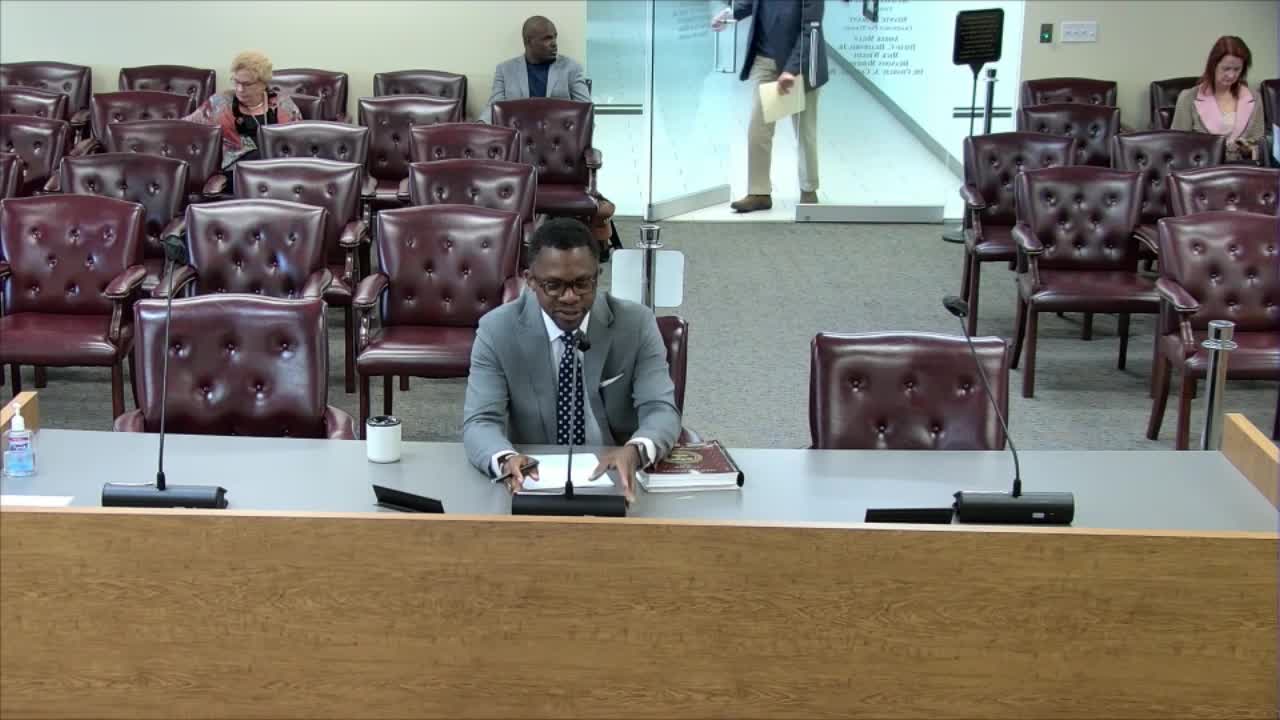County deputy finance officer warns state bill could force $82 million gap and a 36¢ tax-rate jump for Shelby County
Get AI-powered insights, summaries, and transcripts
Subscribe
Summary
Michael Thompson, deputy director of administration and finance, told the Shelby County Budget Subcommittee on March 19 that House Bill 306 (HB306) would remove an accounting practice the county uses to record vacancy savings and could create an $82 million gap in the general fund.
Michael Thompson, deputy director of administration and finance, briefed the Shelby County Budget Subcommittee on March 19 about the fiscal implications of Tennessee House Bill 306 (HB306).
Thompson said HB306 would prevent a county legislative body from including a line item that accounts for vacancy savings (the budgeted payroll that is not spent when positions stay vacant). He warned that removing that accounting mechanism from the county budget would create a shortfall of roughly $82,000,000 in the county’s FY25 general fund budget and that the gap would require either large cuts or a tax increase. Using the county’s stated “penny” valuation of about $2.3 million per penny, Thompson said bridging an $82 million shortfall would amount to a roughly 36¢ increase in the property tax rate.
Why it matters: Budgeting conventions that record vacancy savings allow local governments to budget conservatively for payroll while recognizing that not every authorized position is filled every pay period. Thompson characterized the accounting change as a significant fiscal shock that would force tradeoffs between cutting services or raising property taxes.
Key points from the presentation
- Historical context: Thompson showed a county budget book page dating back to FY2009 that used a similar salary-savings accounting line. He said this is not a new practice and that the FY2009 example showed a $9.7 million vacancy-savings entry for one office.
- Fiscal math: Thompson summarized the math for commissioners: at an assumed penny value of $2.3 million, replacing an $82 million budget gap would require about 36 pennies (i.e., 36¢ on the tax rate). He described the options to fill a gap as cutting services, raising taxes or reallocating funds.
- Coordination and advocacy: Thompson said county attorneys and lobbyists had been engaged on the issue but that the legislation had gained traction; he encouraged commissioners to monitor the House proceeding, which he said was scheduled that day at 1:30 p.m.
Quotes and evidence
- “If this bill passes, the salary restriction that was adopted in FY25 for the general fund was $82,000,000… If this bill passes, the county legislative body will not be able to have that line item in future budgets as it stands,” Thompson said. - Thompson summarized the tax-rate implication: “That's 36. That's a 36p increase, potential increase to the tax rate in order to make up for legislation that will significantly impact Shelby County citizens.”
What commissioners asked and next steps
Commissioner Wright asked whether county lobbyists and attorneys had been engaged; Thompson said they had and that county staff had been working the issue for several weeks. Thompson said the county would continue to inform commissioners about the fiscal implications and expected legislative movement.
Ending
Thompson asked commissioners to watch the pending House action and to weigh the potential consequences, saying the change would require difficult tradeoffs if enacted.
